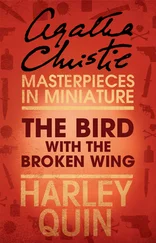Edmond About - The Man With The Broken Ear
Здесь есть возможность читать онлайн «Edmond About - The Man With The Broken Ear» — ознакомительный отрывок электронной книги совершенно бесплатно, а после прочтения отрывка купить полную версию. В некоторых случаях можно слушать аудио, скачать через торрент в формате fb2 и присутствует краткое содержание. Жанр: literature_19, foreign_antique, foreign_prose, Зарубежные любовные романы, на английском языке. Описание произведения, (предисловие) а так же отзывы посетителей доступны на портале библиотеки ЛибКат.
- Название:The Man With The Broken Ear
- Автор:
- Жанр:
- Год:неизвестен
- ISBN:нет данных
- Рейтинг книги:3 / 5. Голосов: 1
-
Избранное:Добавить в избранное
- Отзывы:
-
Ваша оценка:
- 60
- 1
- 2
- 3
- 4
- 5
The Man With The Broken Ear: краткое содержание, описание и аннотация
Предлагаем к чтению аннотацию, описание, краткое содержание или предисловие (зависит от того, что написал сам автор книги «The Man With The Broken Ear»). Если вы не нашли необходимую информацию о книге — напишите в комментариях, мы постараемся отыскать её.
The Man With The Broken Ear — читать онлайн ознакомительный отрывок
Ниже представлен текст книги, разбитый по страницам. Система сохранения места последней прочитанной страницы, позволяет с удобством читать онлайн бесплатно книгу «The Man With The Broken Ear», без необходимости каждый раз заново искать на чём Вы остановились. Поставьте закладку, и сможете в любой момент перейти на страницу, на которой закончили чтение.
Интервал:
Закладка:
I trust that he will accept this feeble compensation for the ordeals he has undergone in my laboratory, and the service he has rendered to science.
Finally, in order that my nephew Nicholas Meiser may exactly understand the duties I leave him to perform, I have resolved to inscribe here a detailed account of the desiccation of Colonel Fougas, my sole heir.
It was on the 11th of November in that unhappy year 1813, that my relations with this brave young man began. I had long since quitted Dantzic, where the noise of cannon and the danger from bombs had rendered all labor impossible, and retired with my instruments and books under the protection of the Allied Armies in the fortified town of Liebenfeld. The French garrisons of Dantzic, Stettin, Custrin, Glogau, Hamburg and several other German towns could not communicate with each other or with their native land; meanwhile General Rapp was obstinately defending himself against the English fleet and the Russian army. Colonel Fougas was taken by a detachment of the Barclay de Tolly corps, as he was trying to pass the Vistula on the ice, on the way to Dantzic. They brought him prisoner to Liebenfeld on the 11th of November, just at my supper time, and Sergeant Garok, who commanded in the village, forced me to be present at the examination and act as interpreter.
The open countenance, manly voice, proud firmness and fine carriage of the unfortunate young man won my heart. He had made the sacrifice of his life. His only regret, he said, was having stranded so near port, after passing through four armies; and being unable to carry out the Emperor's orders. He appeared animated by that French fanaticism which has done so much harm to our beloved Germany. Nevertheless I could not help defending him; and I translated his words less as an interpreter than as an advocate. Unhappily, they found upon him a letter from Napoleon to General Rapp, of which I preserved a copy:
"Abandon Dantzic, break the blockade, unite with the garrisons of Stettin, Custrin and Glogau, march along the Elbe, arrange with St. Cyr and Davoust to concentrate the forces scattered at Dresden, Forgau, Wittenberg, Magdeburg and Hamburg; roll up an army like a snow ball; cross Westphalia, which is open, and come to defend the line of the Rhine with an army of 170,000 Frenchmen which you will have saved!
"Napoleon."This letter was sent to the headquarters of the Russian army, whilst a half-dozen illiterate soldiers, drunk with joy and bad brandy, condemned the brave Colonel of the 23d of the line to the death of a spy and a traitor. The execution was fixed for the next day, the 12th, and M. Pierre Victor Fougas, after having thanked and embraced me with the most touching sensibility, (He is a husband and a father.) was shut up in the little battlemented tower of Liebenfeld, where the wind whistles terribly through all the loopholes.
The night of the 11th and 12th of November was one of the severest of that terrible winter. My self-registering thermometer, which hung outside my window with a southeast exposure, marked nineteen degrees below zero, centigrade. I went early in the morning to bid the Colonel a last farewell, and met Sergeant Garok, who said to me in bad German:
"We won't have to kill the Frantzouski, he is frozen to death."
I ran to the prison. The colonel was lying on his back, rigid. But I found after a few minutes' examination, that the rigidity of the body was not that of death. The joints, though they had not their ordinary suppleness, could be bent and extended without any great effort. The limbs, the face, and the chest gave my hands a sensation of cold, but very different from that which I had often experienced from contact with corpses.
Knowing that he had passed several nights without sleep, and endured extraordinary fatigues, I did not doubt that he had fallen into that profound and lethargic sleep which is superinduced by intense cold, and which if too far prolonged slackens respiration and circulation to a point where the most delicate physiological tests are necessary to discover the continuance of life. The pulse was insensible; at least my fingers, benumbed with cold, could not feel it. My hardness of hearing (I was then in my sixty-ninth year) prevented my determining by auscultation whether the beats of the heart still aroused those feeble though prolonged vibrations which the ear continues to hear some time after the hand fails to detect them.
The colonel had reached that point of torpor produced by cold, where to revive a man without causing him to die, requires numerous and delicate attentions. Some hours after, congelation would supervene, and with it, impossibility of restoration to life.
I was in the greatest perplexity. On the one hand I knew that he was dying on my hands by congelation; on the other, I could not, by myself, bestow upon him the attentions that were indispensable. If I were to administer stimulants without having him, at the same time, rubbed on the trunk and limbs by three or four vigorous assistants, I would revive him only to see him die. I had still before my eyes the spectacle of that lovely young girl asphyxiated in a fire, whom I succeeded in reviving by placing burning coals under the clavicles, but who could only call her mother, and died almost immediately, in spite of the administration of internal stimulants and electricity for inducing contractions of the diaphragm and heart.
And even if I should succeed in bringing him back to health and strength, was not he condemned by court-martial? Did not humanity forbid my rousing him from this repose akin to death, to deliver him to the horrors of execution?
I must confess that in the presence of this organism where life was suspended, my ideas on reanimation took, as it were, fresh hold upon me. I had so often desiccated and revived beings quite elevated in the animal scale, that I did not doubt the success of the operation, even on a man. By myself alone I could not revive and save the Colonel; but I had in my laboratory, all the instruments necessary to desiccate him without assistance.
To sum up, three alternatives offered themselves to me. I. To leave the Colonel in the crenellated tower, where he would have died the same day of congelation. II. To revive him by stimulants, at the risk of killing him. And for what? To give him up, in case of success, to inevitable execution. III. To desiccate him in my laboratory with the quasi certainty of resuscitating him after the restoration of peace. All friends of humanity will doubtless comprehend that I could not hesitate long.
I had Sergeant Garok called, and I begged him to sell me the body of the Colonel. It was not the first time that I had bought a corpse for dissection, so my request excited no suspicion. The bargain concluded, I gave him four bottles of kirsch-wasser, and soon two Russian soldiers brought me Colonel Fougas on a stretcher.
As soon as I was alone with him, I pricked one of his fingers: pressure forced out a drop of blood. To place it under a microscope between two plates of glass was the work of a minute. Oh, joy! The fibrin was not coagulated. The red globules appeared cleanly circular, flattened, biconcave, and without notches, indentations or spheroidal swellings. The white globules changed their shape, taking at intervals the spherical form, and varying their shapes again by delicate expansions. I was not deceived then, it was a torpid man that I had under my eyes, and not a dead one!
I placed him on a pair of scales. He weighed one hundred and forty pounds, clothing included. I did not care to undress him, for I had noticed that animals desiccated directly in contact with the air, died oftener than those which remained covered with moss and other soft materials, during the ordeal of desiccation.
My great air-pump, with its immense platform, its enormous oval wrought-iron receiver, which a rope running on a pulley firmly fixed in the ceiling easily raised and lowered by means of a windlass—all these thousand and one contrivances which I had so laboriously prepared in spite of the railleries of those who envied me, and which I felt desolate at seeing unemployed, were going to find their use! Unexpected circumstances had arisen at last to procure me such a subject for experiment, as I had in vain endeavored to procure, while I was attempting to reduce to torpidity dogs, rabbits, sheep and other mammals by the aid of freezing mixtures. Long ago, without doubt, would these results have been attained if I had been aided by those who surrounded me, instead of being made the butt of their railleries; if our authorities had sustained me with their influence instead of treating me as a subversive spirit.
Читать дальшеИнтервал:
Закладка:
Похожие книги на «The Man With The Broken Ear»
Представляем Вашему вниманию похожие книги на «The Man With The Broken Ear» списком для выбора. Мы отобрали схожую по названию и смыслу литературу в надежде предоставить читателям больше вариантов отыскать новые, интересные, ещё непрочитанные произведения.
Обсуждение, отзывы о книге «The Man With The Broken Ear» и просто собственные мнения читателей. Оставьте ваши комментарии, напишите, что Вы думаете о произведении, его смысле или главных героях. Укажите что конкретно понравилось, а что нет, и почему Вы так считаете.












